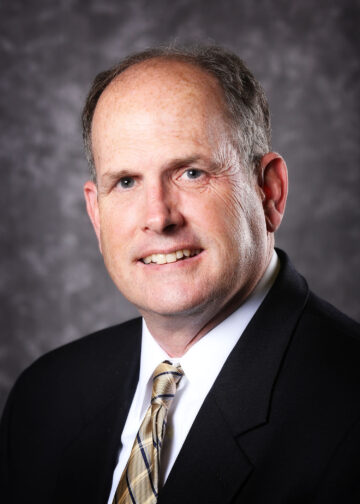Election 2022 Candidate Questionnaire – Richard Moloney
Running for: Council At-Large
Question: What brought you to Lexington-Fayette County? What do you love about our community?
I am a life-long resident and I have deep family ties to the region.
Question: Like the rest of the nation, Lexington faces critical challenges around developing adequate Affordable housing for low-income families and increasing attainable missing middle housing for the average income resident. What specific policy recommendations do you have to address these different challenges?
I have always supported affordable housing in my career and in my many years of public service. We need to continue to fund the Affordable Housing Trust Fund and prioritize budget allocations for the variety of good programs that are currently addressing housing and homelessness in our community.
Question: The 2018 Comprehensive Plan, Imagine Lexington, prioritizes infill redevelopment within the Urban Service Boundary as a primary strategy to accommodate our growth needs. How do you propose we incentivize infill and redevelopment to activate the approximately 17,000 acres of vacant, underused and underutilized land (much of which exists on our major commercial corridors) within the Urban Service Area? What specific policy recommendations or incentives do you think we could utilize to ensure we sustainably use our existing resources to meet our needs?
I am a strong proponent of infill and redevelopment and I have always supported incentives to leverage Federal, State and local dollars to assist infill development. Unfortunately, I have found myself on the losing side of several infill development projects that failed to move forward due to opposition from the community.
Question: The balance between our urban and rural areas is essential to our unique economy, environment, and quality of life in Lexington-Fayette County. Since the last expansion of the Urban Service Boundary in 1996, only 51% of the land brought within the boundary has been developed, and no Affordable housing has been built in those dedicated expansion areas. Do you support an expansion of the Urban Service Area during the current Comprehensive Planning update process? Please explain.
Lexington has gateway location along the intersection of Interstates 75 and 64 that I think we need capitalize upon. Our revenues are driven by employees working in our community, so we should focus on growing and developing business opportunities that draw regional workers who may prefer to live in surrounding counties.
Question: To grow Lexington-Fayette County sustainably, we must grow equitably and consider impacts on our marginalized and underserved communities. What specific policies would you recommend to incentivize community-driven investments in historically disinvested neighborhoods while preventing displacement which can result from gentrification?
We need to help our most vulnerable neighbors by continuing to prioritize budget allocations for housing stabilization and repairs, rental and utility assistance, eviction relief and other programs that are already in place and working.
Question: What do you see as the pillars of Lexington-Fayette County’s strong and diverse economy? What specific policies do you recommend for: a) activating existing economic development land for jobs, such as the nearly 250 acres at Coldstream; b) creating opportunities for job growth utilizing the significant vacant office and commercial spaces within our urban area, and c) leveraging our unique assets and community strengths to support job growth and continued economic prosperity?
I think our strong and diverse economy comes from our success in balancing growth while maintaining our unique rural identity. Job growth drives our economy and we need to work with our community partners to attract and retain employers who need a skilled and educated workforce.
Question: Fayette County agriculture industries are a significant part of our local economy and cultural identity, having a $2.3 billion dollar annual economic impact, supporting 1 out of every 12 jobs, and anchoring a $2 billion dollar local tourism industry. What specific policies do you support to ensure the continued strength of our agriculture industries and the rural land that supports them?
My family is in the cattle business, and I have always been supportive of the agricultural industry. I worked hard to secure ARPA funding to establish a year-round farmers’ market and I am excited that we will finally have a permanent indoor/outdoor market in a central location.
Question: The federal Infrastructure Investment and Jobs Act (IIJA) and the Bipartisan Infrastructure Law (BIL) funds offer Lexington-Fayette County a transformational opportunity to invest in transportation, water, power and energy, environmental remediation, public lands, community resilience and broadband. What specific policy recommendations do you have for approaching quality of life investments and capital improvements to make the most efficient use of these funds in the coming years? What are the top priorities for investment in Lexington-Fayette County?
I agree that the funds offer a transformational opportunity for our community. My priority is to make sure we use the funding wisely in the years ahead because we are not out of the woods yet. Prior to the pandemic, we were facing a significant revenue shortfall. One time funding from the relief packages must not be mistaken for new and continuing revenue.
Question: According to the Center for Neighborhood Technology, the average Lexingtonian spends 24% of their income on transportation costs and 26% on housing. What specific policies would you propose to incentivize public transportation, bike/pedestrian improvements, and walkable developments near existing infrastructure to help alleviate both traffic and transportation costs in our community?
I currently serve on the Metropolitan Planning Organization (MPO) and I support public transportation and multi-modal projects for the region, not just Lexington. I believe we are making progress, but there are many worthwhile projects that have been identified yet lack funding to get completed.

